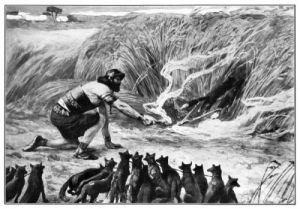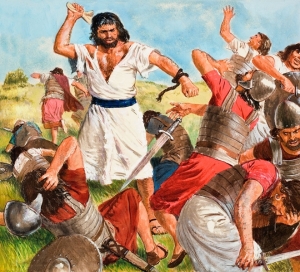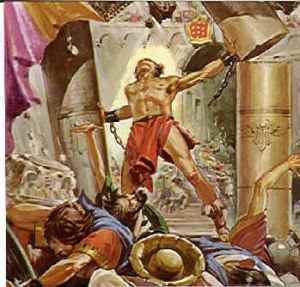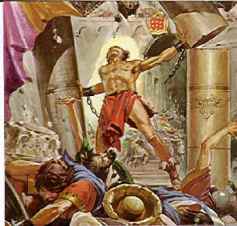A sermon for the Transfiguration of our Lord from Luke 9:28-36
Well, in case you missed the announcement this morning or have failed to check your calendar, this is your friendly reminder that Ash Wednesday is this week- February 13th. Ash Wednesday, of course, marks the beginning of the season of Lent in the church year. So my question for you today is: What are you giving up this year for Lent?
Some of you might be wondering what in the world I am talking about. Why would I give something up for Lent? And that’s ok. Perhaps you do not come from a background where giving something up for Lent was ever mentioned or practiced. This could be a foreign concept to you. And again, that’s ok. Don’t worry, you’ll learn all about it today.
In my family growing up, my parents encouraged us children to give something up for the season of Lent. Of course, right away they would shoot down our brilliantly conceived ideas of giving up school, or homework, or piano lessons. No, no, we were supposed to give up something that we liked or enjoyed for the 40 days of Lent. So our self-denial usually came down to giving up some sort of food- ice cream, chocolate, desserts in general, potato chips, soda. Something like that. Giving up vegetables never worked either.
 And for those of you who have at some point given something up for Lent, I am willing to bet that your sacrifice almost always is some sort of food as well. Obviously, there is nothing wrong with that. Giving up a certain food that you enjoy is like a mini-fast, and fasting is a practice often talked about in the Bible.
And for those of you who have at some point given something up for Lent, I am willing to bet that your sacrifice almost always is some sort of food as well. Obviously, there is nothing wrong with that. Giving up a certain food that you enjoy is like a mini-fast, and fasting is a practice often talked about in the Bible.
So should you fast? Some of you might raise an objection that fasting is a Roman Catholic thing. We don’t do that. We’re Lutherans. We don’t want to be associated with those Catholics. And it is true that the Roman Catholic Church has a long history of fasting, especially during Lent. Roman Catholics are told that they should fast during Lent, specifically that they should give up meat on Fridays- except for fish of course. You can eat all the fish you want. Captain D must have been a smart Roman Catholic. But the Catholics are not the only ones who have a long history of fasting.
Another objection to fasting might be: Well, that’s just an Old Testament thing. Certainly, fasting is a topic well-covered in the Old Testament. God gave his people Israel very detailed instructions on when they were to fast, for how long, what they were allowed to eat at certain times, and what the consequences were if you broke your fast. On the Sabbath Day, you were not supposed to eat from sunup to sundown. It was commanded. But fasting doesn’t go away with the New Testament and the arrival of Jesus. Rather, it seems that Jesus almost assumes that his disciples will fast. He says in Matthew 6: “And when you pray, don’t do it like the Pharisees…and when you fast, don’t do it like them either.” Jesus doesn’t say, “If you pray…” or “If you fast…” When you pray and when you fast.
So the Catholics don’t hold a monopoly on fasting and Jesus didn’t do away with it either. So let’s ask another important question: What is fasting? Fasting is an ancient Christian discipline that has always been used as part and parcel of a life of prayer and meditation of God’s Word. Fasting is denying your body food for a certain period of time. Why would you want to do this? It is to train and subdue yourself with bodily restraints or bodily exercises. Fasting is a discipline meant to help you reflect on your own sinfulness and on Christ’s sacrifice for you.
So even in the Lutheran Church, fasting is a commendable practice. However, and this is the key, we must reject and condemn any attempt to make laws, regulations and rules about it. In other words, while fasting is a good practice, it is not required or commanded. Fasting is a good practice, but it does not earn you any special favor with God or make you a better Christian than everybody else. That’s what Jesus was getting at in Matthew 6:
“And when you fast, do not look gloomy like the hypocrites, for they disfigure their faces that their fasting may be seen by others.” The Pharisees, when they fasted, made a show of it. “Look at me! Come and see how good I am! God surely loves me!” That isn’t the point. Fasting doesn’t earn you extra points with God.
But now you might be thinking to yourself, “Pastor Schmidt, if fasting is not required or commanded and if it doesn’t earn me any special favor with God, what is the point? Why are you then wasting an entire sermon on this subject?” A fair question- but stick with me. I promise that I am going somewhere with this.
Let’s go back to what fasting is good for. It is a practice which helps you to reflect on your own sinfulness and on Christ’s sacrifice for you. That is why fasting is typically connected with the season of Lent and that is why I asked what you are giving up for Lent. Lent is the season of the church year where we especially focus on our own sinfulness and on Jesus’ journey to the cross. Lent is a time of repentance and is well summed up by Joel 2: 14: Return to the Lord your God, for he is gracious and merciful, slow to anger, and abounding in steadfast love.
Lent is not primarily about fasting or giving something up. Denying ourselves something during Lent is a way to help us concentrate on the true purpose of Lent: to fix our eyes on Jesus and to ponder the purpose, reasons, and necessity of our Lord’s suffering and death for us.
 That brings us to our Gospel reading for today which is Luke’s account of the Transfiguration of our Lord. Now when Jesus is transfigured and glorified on the mountain, it certainly does not bring up images of Jesus’ suffering and death for us. Rather, it tends to do just the opposite. On the mount of Transfiguration, the 3 disciples with Jesus finally see his true glory and power. Moses and Elijah are talking to him. God the Father actually speaks: “This is my Son, my Chosen One; listen to him!” It is an amazing and frightening experience for them. There is no hint of suffering or shame or sacrifice. There is no hint of Lent.
That brings us to our Gospel reading for today which is Luke’s account of the Transfiguration of our Lord. Now when Jesus is transfigured and glorified on the mountain, it certainly does not bring up images of Jesus’ suffering and death for us. Rather, it tends to do just the opposite. On the mount of Transfiguration, the 3 disciples with Jesus finally see his true glory and power. Moses and Elijah are talking to him. God the Father actually speaks: “This is my Son, my Chosen One; listen to him!” It is an amazing and frightening experience for them. There is no hint of suffering or shame or sacrifice. There is no hint of Lent.
Yet, the story of the Transfiguration is always the Gospel reading for the Sunday before Ash Wednesday. Maybe you didn’t know that, but it is true. Every year, we read about the Transfiguration right before Lent starts. Why is that? On the mountain of Transfiguration, we get a glimpse of Jesus’ glory, a glory that will not be revealed again until Jesus rises from the dead and ascends into heaven. But before we get to the glory of the resurrection, we have to go to the cross.
You see, Luke continues his Gospel right after the Transfiguration in this way: On the next day, when they had come down from the mountain, a great crowd met him. The key words in that verse are: when they had come down from the mountain. Jesus didn’t stay on the mountain in all his power and glory. That’s what Peter wanted to do. He thought it was great up there. Let’s set up some tents for you and Moses and Elijah and just stay up here. But Jesus couldn’t stay. He had work to do. Even when he was with Moses and Elijah, they were talking about his future in Jerusalem. They weren’t just catching up on the latest heavenly gossip. God affirmed His Son Jesus and his mission on the mountain, but he had to come down. Later again in chapter 9, Luke says this about Jesus: When the days drew near for him to be taken up, he set his face to go to Jerusalem. Jesus set his face to go to Jerusalem. What was waiting for him in Jerusalem? The cross. He was to be taken up and crucified. Jesus was getting ready for what he came to do. He was heading to the cross.
And he invites you to go with him. In Luke 9, before the Transfiguration, Jesus tells his disciples: “If anyone would come after me, let him deny himself and take up his cross daily and follow me. For whoever would save his life will lose it, but whoever loses his life for my sake will save it.” That’s what the season of Lent is all about. It is a time for the church to journey with Jesus to the cross. It is a time of self-denial because, let’s face it, in our consumer culture, we are not used to denying ourselves anything. We are selfish and self-centered. We are used to getting whatever we want. And if we don’t get it, we covet it or whine about it. But Jesus has a different idea for our lives. Deny yourself. Take up your cross. Follow him. Now Jesus’ call to deny ourselves certainly isn’t limited to Lent- it’s a 24-7 proposition. But we do tend to concentrate on it especially during Lent.
You see, the 40 days of Lent help prepare us for the Holiest of Holies of the church year: Holy Week.
During Holy Week, we walk the steps of Jesus: from his entrance into Jerusalem, to his clearing out of the temple, to his teaching about the Last Days, to his Last Supper in the upper room, to his anguish in the Garden of Gethsemane, to his betrayal and arrest, his trial, his floggings, his crown of thorns, his walk through Jerusalem carrying his own cross, to his crucifixion and death and burial. We journey that whole way with Jesus every year so that we can truly appreciate the miracle and wonder of Easter where Jesus is glorified once again as he rises from the dead and declares victory over sin, death and Satan.
Giving up something for Lent is a way for you to reflect even more upon your own sinfulness and upon the magnitude of Christ’s sacrifice for you. When you fast or simply cut back on the food you eat, and you feel that twinge, or even sharp stab of hunger, you can be reminded: Oh yes, hunger. Yes, Lent. Yes, Jesus suffered for me. He felt the deep sharp stab of thorn and nail, for me. When you give up something you enjoy like chocolate or potato chips, and you find yourself craving those things, you can be reminded: Jesus gave up his life for me, a poor, miserable, and selfish sinner. When you discipline yourself, you can be reminded of Jesus’ discipline for you. As he was suffering and being accused falsely or being mocked on the cross, he could have used his glory and power to come down from the cross. But he didn’t. He stayed on the cross, enduring its shame, for you.
But he was pierced for our transgressions; he was crushed for our iniquities; upon him was the chastisement that brought us peace, and with his wounds we are healed. All we like sheep have gone astray; we have turned—every one—to his own way; and the Lord has laid on him the iniquity of us all. He was oppressed, and he was afflicted, yet he opened not his mouth; like a lamb that is led to the slaughter, and like a sheep that before its shearers is silent, so he opened not his mouth.
 These words from Isaiah 53 describe the sacrifice and self-denial that Jesus made for you. The words of Isaiah 53 are also the theme of our Wednesday Lenten series this year. The series is entitled “Behold, my Servant,” and each week we will focus on another aspect of Isaiah’s Suffering Servant whom we know to be Jesus Christ. So I have a suggestion for you as a response to the question “What are you giving up for Lent?” Now this is just a suggestion, not a command. You can give up a certain food. You could give up eating until a certain time of the day. But I encourage you to give up an hour. I want you to give up an hour of your time every Wednesday either from 1:00-2:00 in the afternoon or 7:30-8:30 at night to come to our Lenten worship services here at St. John. This really would be self-denial. There are probably a hundred other things you would rather do with that hour on Wednesday.
These words from Isaiah 53 describe the sacrifice and self-denial that Jesus made for you. The words of Isaiah 53 are also the theme of our Wednesday Lenten series this year. The series is entitled “Behold, my Servant,” and each week we will focus on another aspect of Isaiah’s Suffering Servant whom we know to be Jesus Christ. So I have a suggestion for you as a response to the question “What are you giving up for Lent?” Now this is just a suggestion, not a command. You can give up a certain food. You could give up eating until a certain time of the day. But I encourage you to give up an hour. I want you to give up an hour of your time every Wednesday either from 1:00-2:00 in the afternoon or 7:30-8:30 at night to come to our Lenten worship services here at St. John. This really would be self-denial. There are probably a hundred other things you would rather do with that hour on Wednesday.
Remember, giving something up for Lent isn’t something that you do for God to earn his favor. It’s something that you do for yourself so that you can better focus on your own sin and fix your eyes on Jesus and his journey to the cross to earn God’s favor for you. It is a way to read and reflect on God’s Word and be filled up with the Bread of Life. It is a way to return to the Lord in repentance for he is gracious and merciful, slow to anger, and abounding in steadfast love. So what better way to observe Lent and deny yourself than to give up your time and come to God’s house and hear once again of his great love for you? Come and hear about how Jesus set his face toward Jerusalem, toward the cross, knowing the suffering he would face, yet going anyway for you for your sin and selfishness. Come and hear God the Father say to you “This is my son or daughter; my chosen one!” What an opportunity to be blessed by God and by His Word of Good News for your life!
What are you giving up for Lent? That’s up to you. But I do hope and pray that every day you will listen to Jesus calling for you to deny yourself, take up your cross and follow him. For He will lead you to glory everlasting. Amen.
Let us pray: On my heart imprint your image, Blessed Jesus, king of grace, That life’s riches, cares, and pleasures Never may your work erase; Let the clear inscription be: Jesus, crucified for me, Is my life, my hope’s foundation, And my glory and salvation!
HT to Paul McCain of CPH for much of the information on fasting and on a good summary of the Lenten season.















